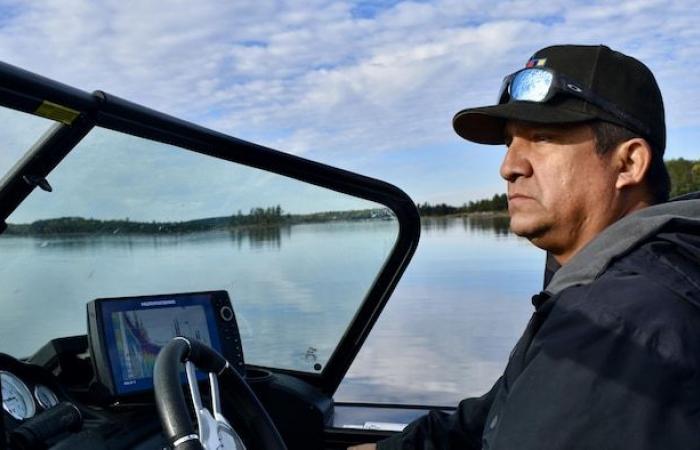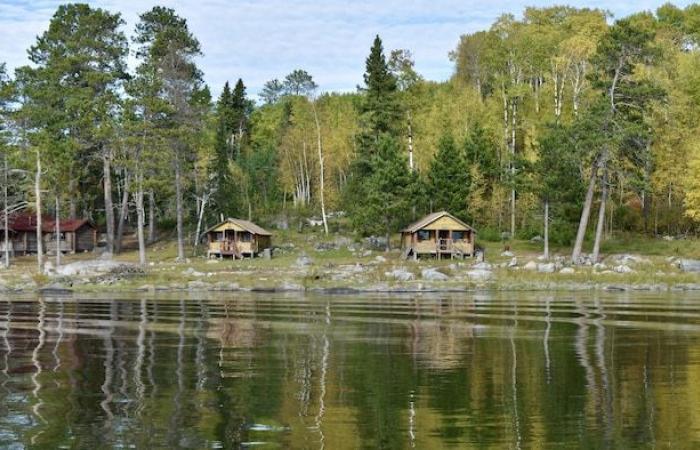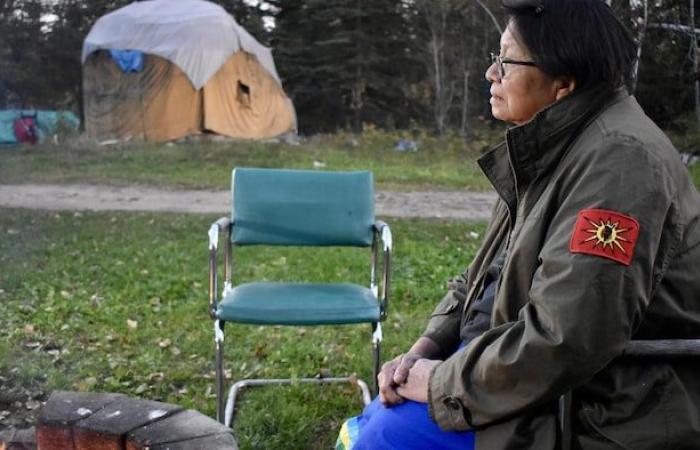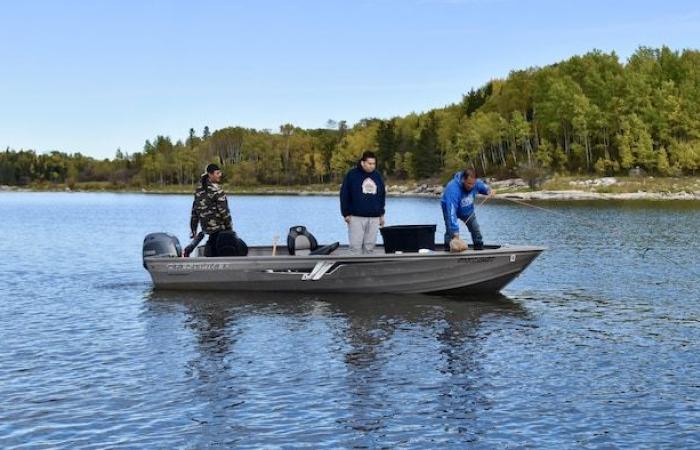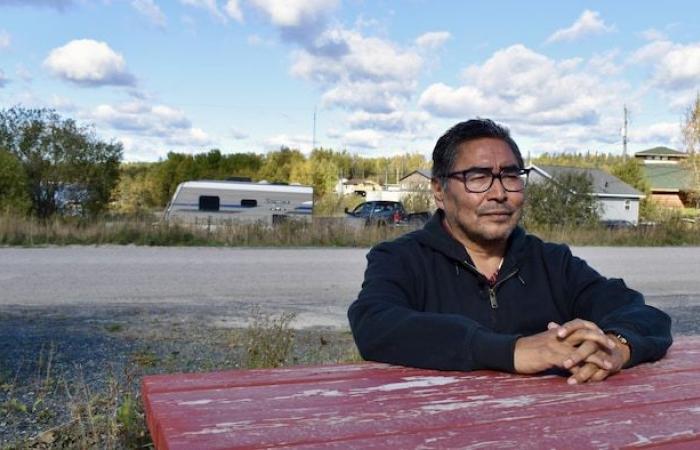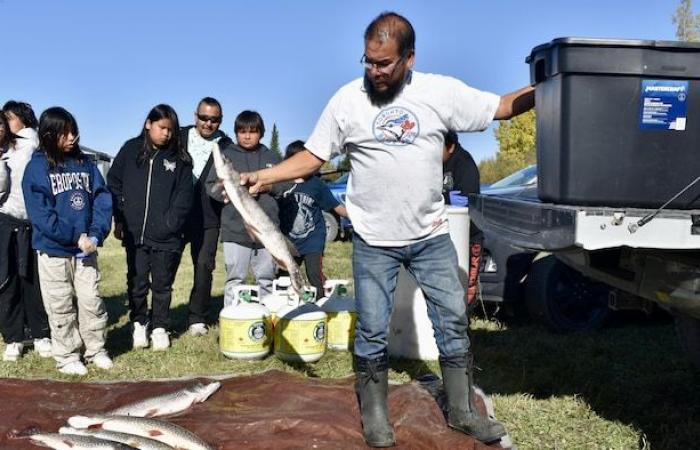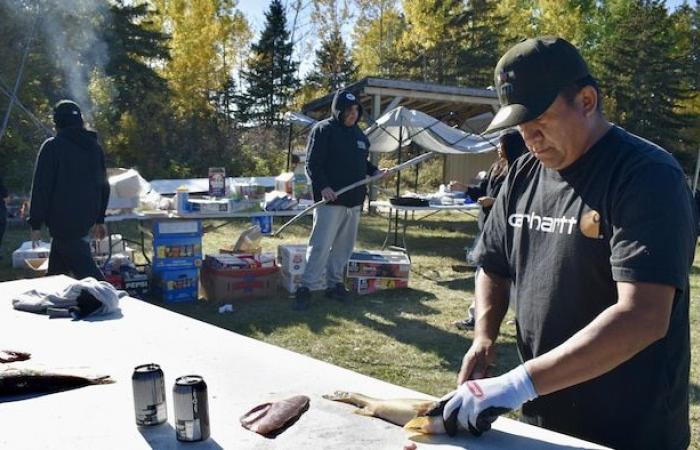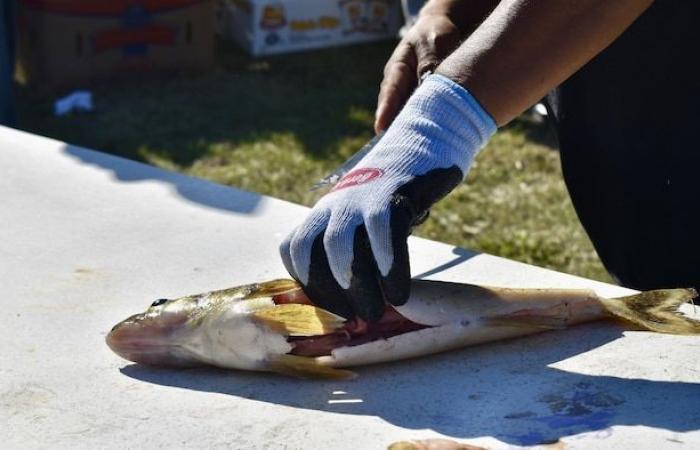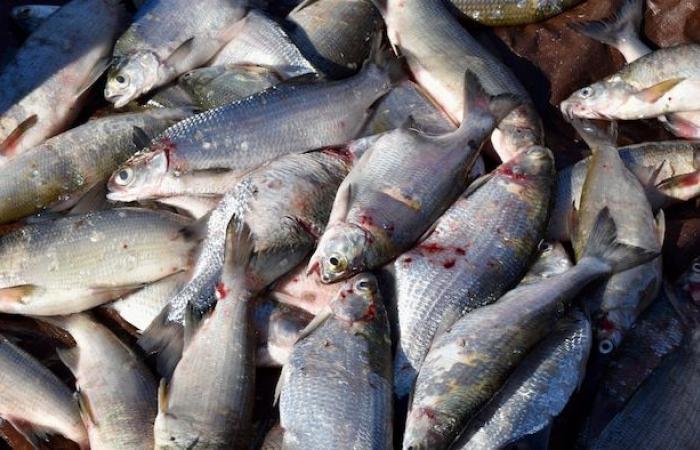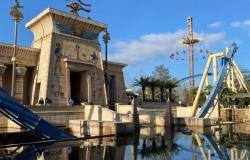Standing on his motorboat, in the middle of a vast and peaceful expanse of water, Mike Fobister scans the horizon. It’s unusually hot for October. The sun is shining, there is no wind, no waves. “A good day to be on the water,” says Mike smiling, dressed in a black coat and cap.
The fisherman knows every corner of the river English-Wabigoon and the numerous lakes into which it flows. When I was young, we came here to duck hunt in the spring
he says, passing near an island. A little further on, near a creek, he notices the new dams built by the beavers.
Open in full screen mode
Mike Fobister grew up in Grassy Narrows. He spent his childhood hunting and fishing with his brother.
Photo : - / Yasmine Mehdi
This lake is probably one of the best places to fish
explains Mike, listing the species of fish found there: walleye, pike, lake cisco, silverfish, among many others.
At 16, Mike started working in an outfitter. It was my first job
he specifies. The father sets sail for this outfitter, now abandoned. On the shore, a few chalets with faded facades still stand. I have a lot of memories here
Mike said in a low voice after a long silence. It’s sad to see what this place has become.
Open in full screen mode
Ball Lake Lodge, an abandoned outfitter. Many residents of Grassy Narrows remember the days when wealthy tourists flew there by seaplane.
Photo : - / Yasmine Mehdi
From self-sufficiency to dependence
In the 1960s, Grassy Narrows is a thriving community. Wealthy tourists from all over North America come to fish there. Men work as fishing guides, women as cooks or cleaners in outfitters.
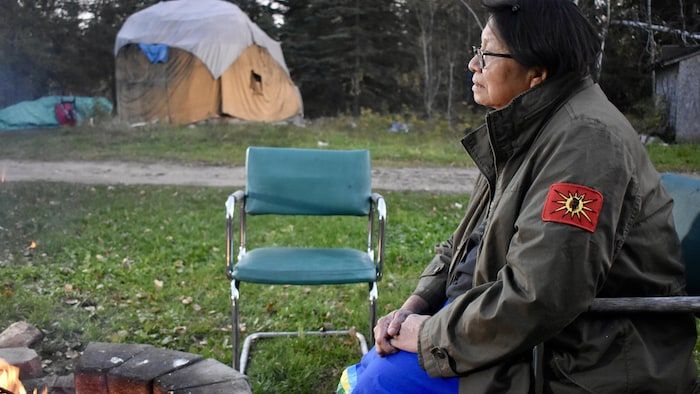
Open in full screen mode
Judy Da Silva is the environmental health coordinator for the Grassy Narrows community.
Photo : - / Yasmine Mehdi
Judy Da Silva, 62, still remembers the wads of cash her father would bring home after selling his fish in Kenora, the closest town to Grassy Narrows. Sitting near a fire, she recounts her happy childhood, when her family lacked nothing. That was before our water was poisoned
she says sadly.
There was a feeling of abundance.
This poisoning changed the life of Judy and all the inhabitants of Grassy Narrows. Between 1962 and 1975, a pulp and paper company in Dryden dumps some 10 tons of mercury into the river English-Wabigoon.
This heavy metal spreads into nearby waterways, is absorbed by fish and accumulates in the food chain. An ecological disaster, which forces the authorities to ban commercial fishing.
How many jobs have been lost due to mercury in water?
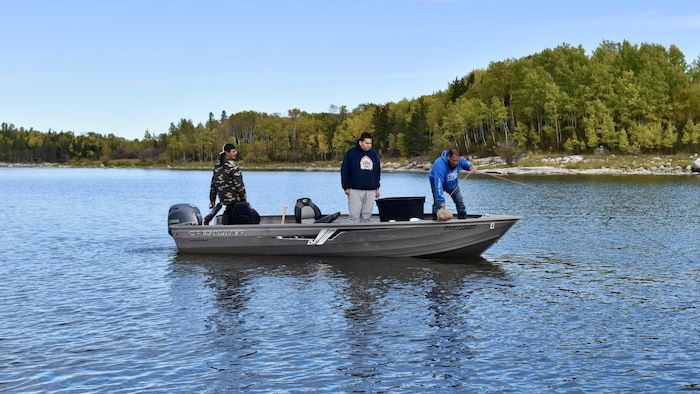
Open in full screen mode
Harrison Fobister and his friends fish with a net.
Photo : - / Yasmine Mehdi
Outfitters near Grassy Narrows close one after the other and almost all the residents find themselves unemployed. It created a lot of problems for our community, people started drinking […] and depend on social assistance
says the chef Rudy Turtlewhose father was also a fishing guide. Quickly, the social fabric of the community crumbles.
In my family alone, we have had four suicides.
We are poisoned
The poisoning of the river has significant socio-economic consequences, but also a serious impact on the health of residents of Grassy Narrows.
For years, children and adults ate fish they didn’t know was contaminated – with documented consequences. In 2020, a study conducted by a researcher from the University of Quebec in Montreal (New window) concluded that the inhabitants of Grassy Narrows were at greater risk of dying prematurely due to their exposure to mercury.
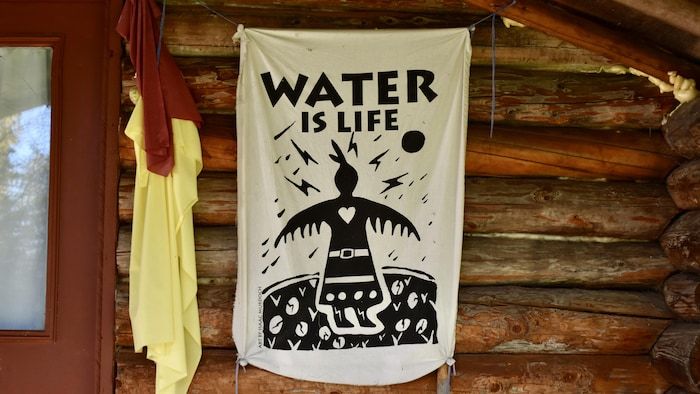
Open in full screen mode
“Water is life. » A poster on a cabin in Grassy Narrows, a community where references to environmental justice are omnipresent.
Photo : - / Yasmine Mehdi
Even today, most residents show symptoms. The leader Rudy Turtle has perpetually numb fingertips. Fisherman Mike Fobister blames mercury for his heart attack three years ago. Judy Da Silva needs a cane or walker to get around. Seeing my loved ones suffer and their health deteriorate… that’s what pushes me to continue
confides the activist.
In 2017, the Ontario government provided $85 million to clean up the river English-Wabigoon. The same year, the Trudeau government promised to build a specialized health care center for victims of mercury poisoning. However, none of these projects has yet seen the light of day. The paper mill of Dryden continues its operations – despite serious concerns from the community regarding its wastewater discharges.
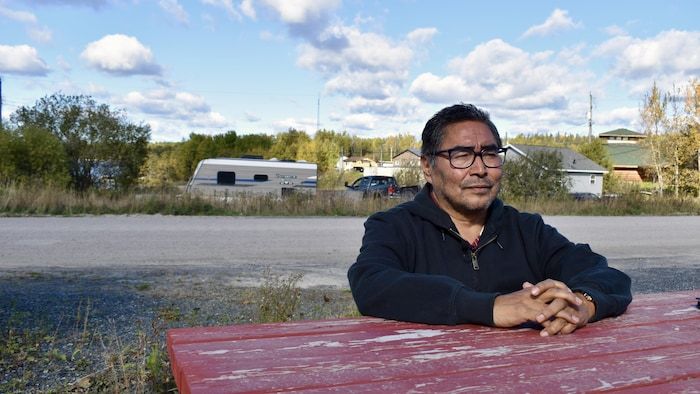
Open in full screen mode
Grassy Narrows leader Rudy Turtle is suffering from symptoms of mercury poisoning himself. “Over the years, I notice that my coordination and balance are not 100%. »
Photo : - / Yasmine Mehdi
I can almost guarantee that if a municipality near Toronto had been poisoned [au mercure]the government would have immediately acted
deplores Rudy Turtle. [Ici]they did not clean the river and nothing was done to remedy the situation.
This summer, Grassy Narrows filed a lawsuit against Ontario and Canada related to the after-effects of mercury contamination. The damages claimed are not quantified in the appeal, but the community says it needs financial, socio-economic and medical support.
This is another long battle and victory is not guaranteed.
A way of life to protect

Open in full screen mode
Harrison Fobister is keen to teach children how to recognize different species of fish.
Photo : - / Yasmine Mehdi
It’s autumn harvest day Grassy Narrows. Adults teach children to build a teepee, play the drum, or pluck ducks. At the end of the afternoon, men return from a fishing trip and present their impressive loot to the children: dozens of fish, which they are taught to recognize and fillet.
These large fish, at the top of the food chain, are almost certainly contaminated with mercury. But the residents of Grassy Narrows continue to eat them on occasion, out of a desire to maintain their ancestral way of life.
-

Open in full screen mode
Mike Fobister fillets a walleye during the fall harvest.
Photo : - / Yasmine Mehdi
-

Open in full screen mode
These fish are almost certainly contaminated with mercury, but fishing is part of the ancestral way of life of the people of Grassy Narrows.
Photo : - / Yasmine Mehdi
-

Open in full screen mode
The impressive haul of net fishing enthusiast Harrison Fobister.
Photo : - / Yasmine Mehdi
These fish are almost certainly contaminated with mercury, but fishing is part of the ancestral way of life of the people of Grassy Narrows.
Photo : - / Yasmine Mehdi
Mike Fobister fillets a walleye during the fall harvest.
Photo : - / Yasmine Mehdi
Album photo: Grassy Narrows
These fish give us life, this river gives us life. We must respect them
affirms Jason Fobisterfather of two children.
How can we listen when we are told not to eat fish, not to speak our language, not to practice our culture?
The fight of Grassy Narrows is for environmental justice, but also for the preservation of an ancestral way of life that many consider threatened by large industries – pulp and paper at the time, mining industry today.
We must fight for the next seven generations
insists Jason Fobister. His father, Joseph, is of the same opinion. The fight is not only for us, but for our children and our grandchildren, so that they have a healthy environment.
The grandfather of 11 grandchildren has been fighting for a long time. He hopes to get justice during his lifetime.

